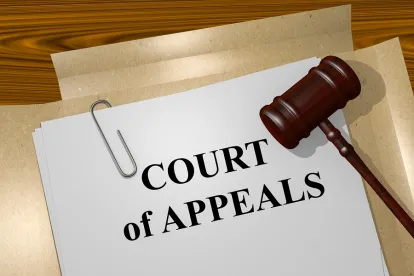Over the past two months, the practice of law has shifted to rely heavily on the use of technology. Communication internally, with clients and with the court is almost exclusively conducted via telephone or videoconference. But the New Jersey Court Rules do not provide clear guidance on the use of video testimony at trial — it is not expressly permitted nor is it expressly prohibited, leaving a gap in interpretation and application. Recently in Pathri v. Kakarlamath, A-4657-18T1 (App. Div. Jan. 23, 2020), the New Jersey Appellate Division picked the perfect time to get “plucky and adventury” and considered a party’s request to testify by video. The opinion clarifies that video testimony is acceptable during trial if warranted by exigent circumstances, and sets forth seven factors for courts to consider. Decided only weeks before the state underwent lockdown due to COVID-19, the court’s analysis is timely to say the least.
Background
Pathri was a matrimonial matter involving a plaintiff who moved back to India after filing suit, and a defendant with two minor children who reside in Maryland. Plaintiff requested to testify via video from India when he could not obtain a visa to attend trial scheduled for June 2019 in New Jersey. The trial court denied the motion, finding it would inhibit the court’s ability to assess plaintiff’s testimony and credibility. On appeal, the Appellate Division noted the lack of guidance from the New Jersey Court Rules on the use of video testimony, and took it upon itself to shed some light on the issue.
Before Pathri, the state’s leading authority on video testimony was a case from 1988, Aqua Marine Products, Inc. v. Pathe Computer Control Systems Corp., 229 N.J. Super. 264 (App. Div. 1988). In Aqua Marine, a contract dispute, the court was concerned that the factfinder would not be able to ascertain the credibility — or even the identity — of the witness via telephone. The opinion laid the groundwork to permit telephone testimony only in “special circumstances in which there is either exigency or consent and in which the witness’ identity and credentials are known quantities.” As pointed out by the court in Pathri, in the more than 30 years since Aqua Marine was decided, the options for virtual testimony extend well beyond the telephone, rendering these concerns somewhat obsolete. Still, the court “found helpful” that Federal Rule of Civil Procedure 43(a), which specifically permits trial testimony via contemporaneous video “for good cause in compelling circumstances and with appropriate safeguards,” sets a standard similar to the “exigency” referred to in Aqua Marine.
With this backdrop, the New Jersey Appellate Division provided the following seven factors for judges when considering applications for video testimony:
-
The witness’s importance to the proceeding (“The greater the witness’ importance in the dispute, the heavier should be the burden of excusing in-person testimony.”)
-
The severity of the factual dispute to which the witness will testify (“The judge should consider whether the witness — even if a party — is offered to address a sharply disputed question of fact, something that goes to the heart of the matter.”)
-
Whether the factfinder is a judge or a jury (“In many instances a judge would likely overcome whatever barrier to ascertaining the witness’ credibility and demeanor is created by contemporaneous video transmission than would a jury of laypersons not accustomed to weighing testimony in any form.”)
-
The cost of requiring the witness’s physical appearance in court versus the cost of transmitting the witness’s testimony in some other form (“Judges should consider whether the cost of insisting on in-person testimony is simply not worth whatever the impact on the factfinder’s assessment of the witness or, for that matter, what it is the parties are fighting over.”)
-
The delay caused by insisting on the witness’s physical appearance in court versus the speed and convenience of allowing the transmission in some other manner (“A judge should consider the scheduling of a trial date that does not cause an undue economic impact on the witness while traveling to and from and testifying in New Jersey.”)
-
Whether the witness’s inability to be present in court at the time of trial was foreseeable or preventable (“A judge may inquire as to the circumstances that led to that trip and whether the witness was faced with the unavoidable consequence of being outside the jurisdiction at the time of trial.”)
-
The witness’s difficulty in appearing in person (Whether a person may be able to appear in person “is not the only factor that should be considered.”).
Amidst these factors, judges also must be mindful of New Jersey Rule 1:1-2, which states the court rules are to be “constructed to secure a just determination, simplicity in procedure, fairness in administration and the elimination of unjustifiable expense and delay.” Further, the opinion states judges are free to exercise their discretion to impose appropriate conditions for the testimony (e.g., the size and number of monitors or specifications on the framing of the video) and to inspect the clarity of the audio and video. The court suggests copies of documents that the parties expect to show to the witness be forwarded to the witness’s location in advance. The decision also does not foreclose a judge’s discretion to deny requests for video testimony if conditions cannot be met.
Chief Justice Rabner’s March 12, 2020, Notice to the Bar indicated that the state would be moving much of its business remote by the use of phone and video. As litigation adapts to become virtual amid the COVID-19 crisis, these new guidelines from the New Jersey Appellate Division will be a helpful outline for video testimony in the coming months and beyond, but it is too soon to tell how this will play out in real time.



 />i
/>i

